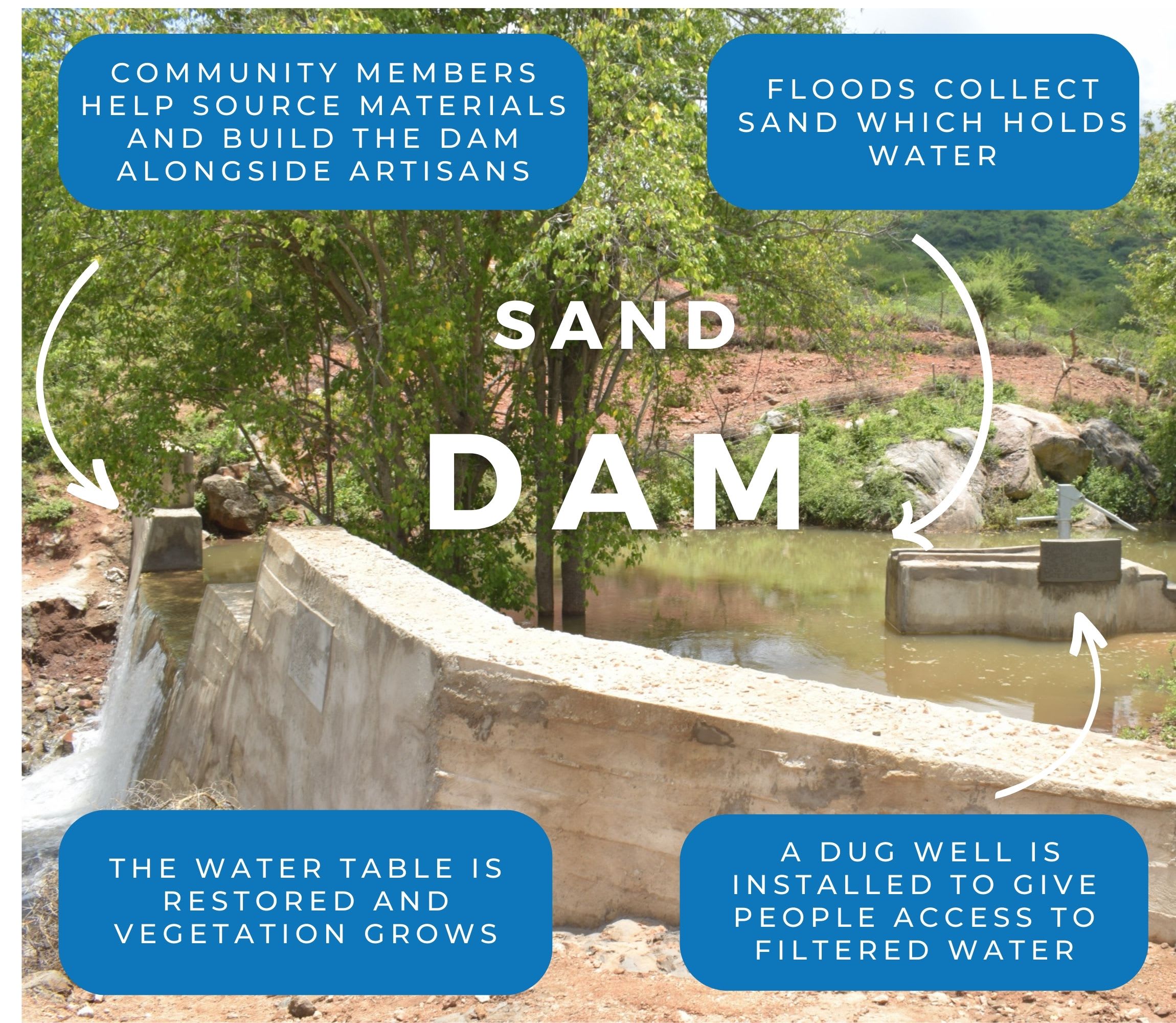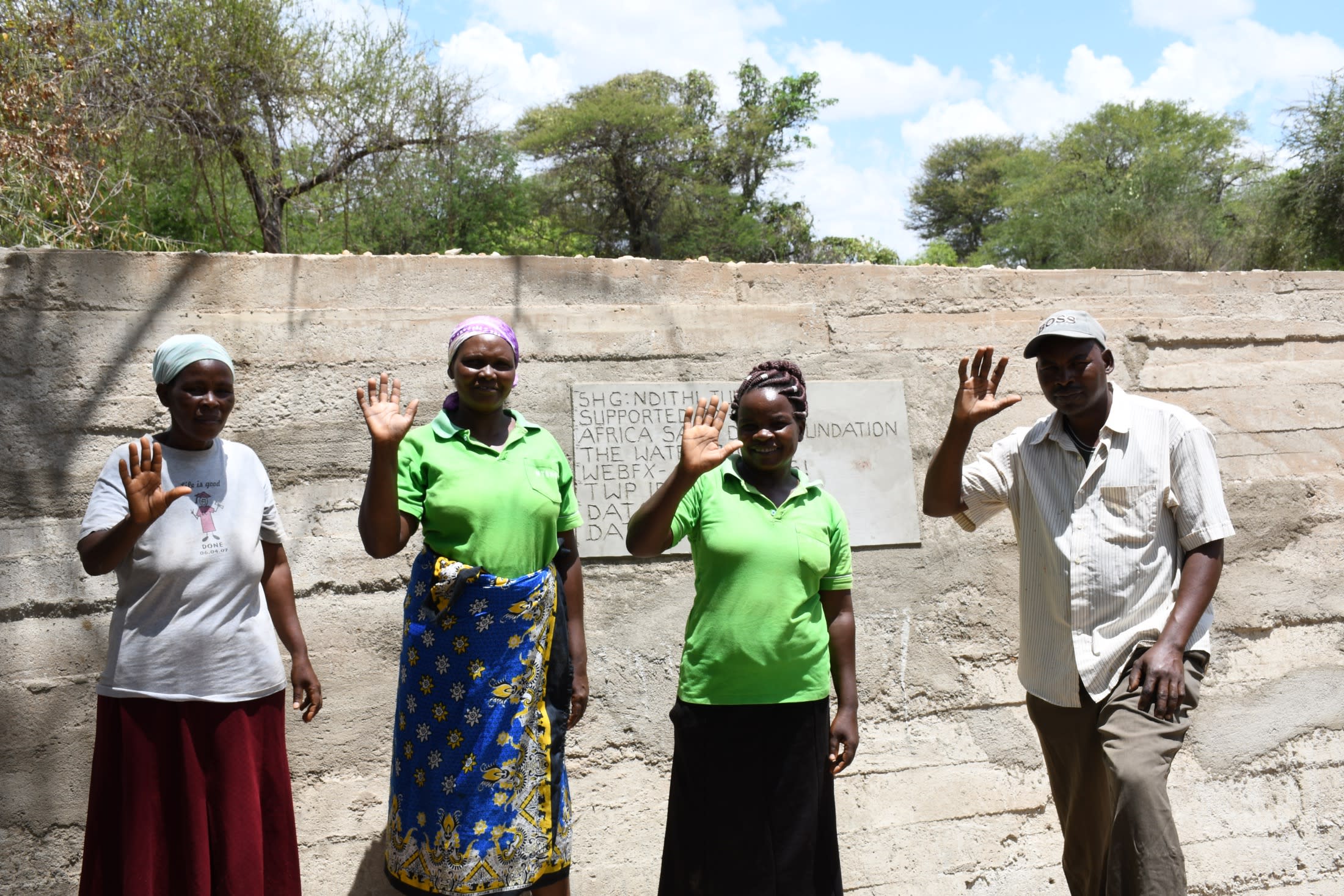Thona Community is found in a peaceful rural setting with characteristic steep slopes and hilly terrain found throughout southeastern Kenya. The area has sparsely distributed vegetation cover as a result of dry conditions experienced in the area. More than 130 people live in this community, but they are spread out from each other since most families make a living through farming. Some people here earn an income through informal labor jobs, as well.
The main water point here is a sand dam and a hand-dug well constructed here last year. However, that alone cannot meet the water needs of all the people here. Many community members still struggle with traveling long distances to access water. This means there is a need for more water projects near their homes to achieve universal water access to all residents of the community.
"Life in our village has been improving since the day we started working with The Water Project. Our first water project came with water and knowledge on some of the best ways to improve our cleanliness levels and avoid diseases in our lives. We need more projects in order to have unlimited water access by everyone in our area," shared Luzy Kanini, a farmer who lives in the community.
On an average day for most of the community members, women and children wake up early in the morning to get ready for the day. The women usually prepare breakfast for the family as the children get ready to go to school. The women or the children will go to fetch water at the best possible source, depending on the time of the year. The men go to the farm to get grass for the livestock and also prepare to run his errands. During the day, the women wash the family's clothes, tidy up the house, cleans utensils, and prepares lunch as well as supper for the family, among other household chores.
For some people here, the time lost to fetching water is significant.
"More water projects are welcome as they will bring water even closer and continue reducing the distances covered and time taken at the water points," said Wanza Ndembei.
What we can do:
Our main entry point into Thona Community has been the Ndithi Tuinuke Self-Help Group, which is comprised of households that are working together to address water and food scarcity in their region. These members will be our hands and feet in both constructing water projects and spreading the message of good hygiene and sanitation to everyone.
Sand Dam
After the community picked the ideal spot, our technical team went in and proved the viability by finding a good foundation of bedrock. Now, our engineers are busy drawing up the blueprints.
We are unified with this community to address the water shortage. As more sand dams are built, the environment will continue to transform. As the sand dams mature and build up more sand, the water tables will rise. Along with this sand dam, a hand-dug well will be installed to give community members a comfortable, safe way to access that water.
Building this sand dam along with the well in this community will help bring clean water closer to hundreds of people living here.
Training
These community members currently do their best to practice good hygiene and sanitation, but their severe lack of water has been a significant hindrance to reaching their fullest potential.
We will hold hygiene and sanitation training sessions with the Ndithi Tuinuke Self-Help Group and other community members to teach about essential hygiene practices and daily habits to establish at the personal, household, and community levels. This training will help to ensure that participants have the knowledge they need to make the most out of their new water point as soon as the water is flowing.
One of the most important topics we plan to cover is the handling, storage, and treatment of water. Having a clean water source will be extremely helpful, but it is useless if water gets contaminated by the time it is consumed. We will also emphasize the importance of handwashing.
The community and we firmly believe that all of these components will work together to improve living standards here, which will help to unlock the potential for these community members to live better, healthier lives.
We typically work with self-help groups for 3 to 5 years on multiple water projects. We will conduct follow-up visits and refresher training during this period and remain in contact with the group after all of the projects are completed to support their efforts to improve sanitation and hygiene.



 Rehabilitation Project
Rehabilitation Project



































